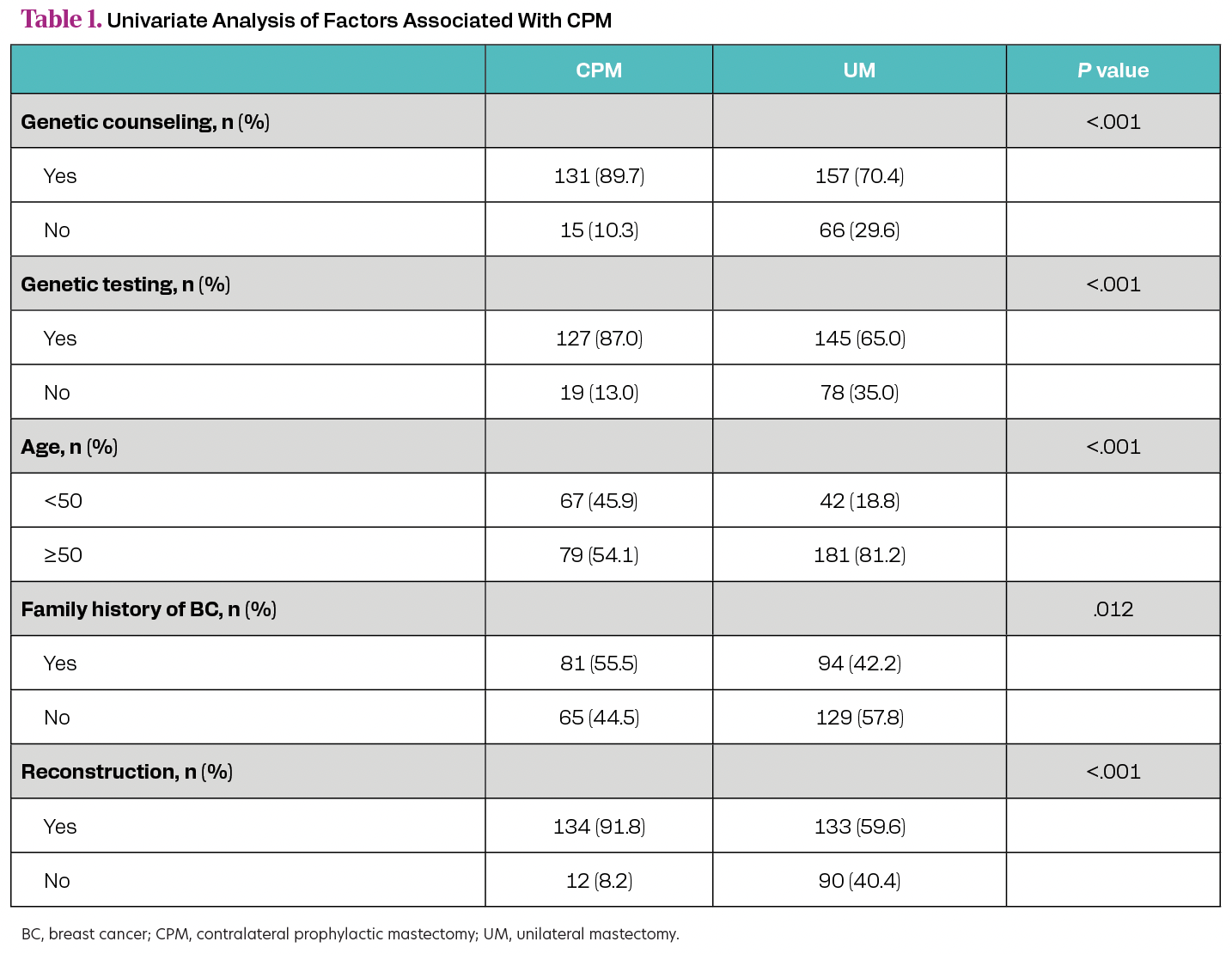55 Do Genetic Counseling and Testing Affect Rates of Contralateral Prophylactic Mastectomy in Patients Without Clinically Actionable Mutations?
55 Do Genetic Counseling and Testing Affect Rates of Contralateral Prophylactic Mastectomy in Patients Without Clinically Actionable Mutations?

Background
Breast cancer is most commonly a unilateral disease. Among patients with unilateral breast cancer undergoing mastectomy who are not at elevated genetic risk, rates of contralateral prophylactic mastectomy (CPM) have been increasing despite lack of evidence for improvement in outcomes. This study assesses factors influencing rates of CPM vs unilateral mastectomy (UM) in patients with unilateral primary breast cancer.
Materials and Methods
369 women with unilateral breast cancer treated with mastectomy between January 2020 and December 2023 were identified from our tumor registry for retrospective chart review. Preoperative genetic counseling (pGC) and testing were assessed and those with deleterious genetic mutations were excluded. Negative genetic results, variants of unknown significance and pending tests prior to surgery were included. Clinical and patient factors were compared using logistic regression between patients who underwent UM vs mastectomy with CPM.
Results
Of 369 patients, 223 (60.4%) underwent UM, while 146 (39.6%) chose CPM. Overall, 288 (78.0%) of patients in our study group received pGC. Of those managed with CPM, 89.7% had pGC as compared with 70.4% of patients who had UM (P <.001). Most counseled patients had genetic testing sent prior to surgery (94.4%). Patients who underwent CPM were also more likely to have had genetic testing than those managed with UM (87.0% vs 65.0%, P <.001). Younger patients were more likely to elect CPM; of 109 patients aged < 50, 67 (61.5%) had CPM while of the 260 patients aged ≥ 50, only 79 (30.4%) chose CPM (P <.001). Self-reported positive family history of breast cancer (FHx) was also associated with CPM, with 55.5% of those undergoing CPM reporting FHx compared with 42.2% for UM (P = .012). Most patients in our study had reconstruction (72.4%). Patients managed with CPM were more likely to have reconstruction (91.8% vs 59.6%, P <.001) (Table).
Table 1. Univariate Analysis of Factors Associated With CPM

Conclusion
pGC and genetic testing were associated with a higher rate of CPM, even though patients positive for deleterious mutations were excluded from this study. Patients undergoing reconstruction, younger patients, and patients who reported FHx were also more likely to have CPM. pGC and genetic testing groups may be enriched with younger patients and/or those with FHx. Patients often have a surgical plan in place prior to receiving their genetic testing results. Our study demonstrates that the decision for CPM is correlated with factors other than documented genetic risk.
